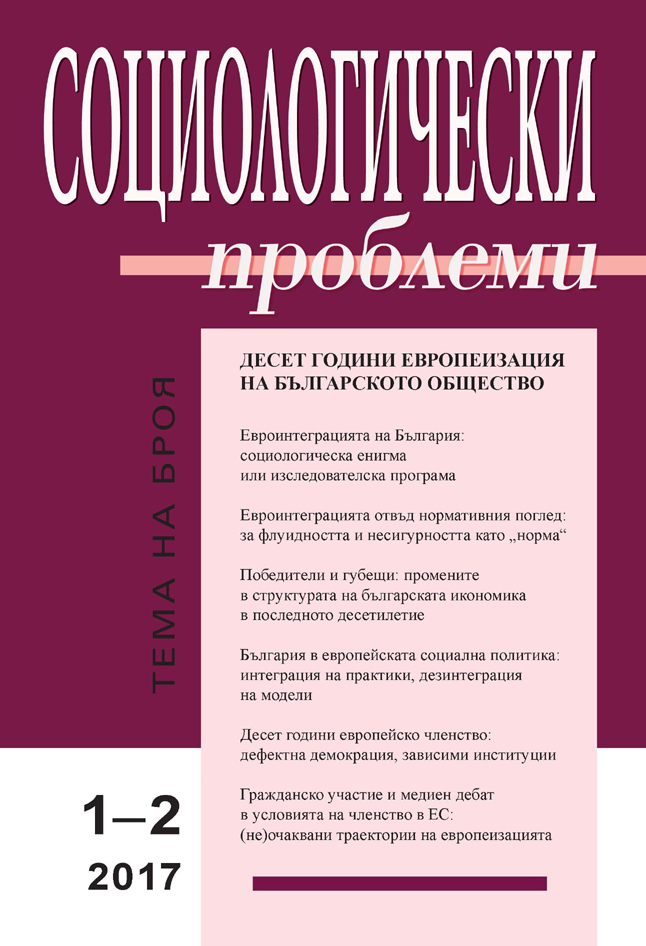Доколко ефективни са европейските структурни и кохезионни фондове?
How Effective Are EU Structural and Cohesion Funds?
Author(s): Dessislava NikolovaSubject(s): Politics / Political Sciences, Politics, Social Sciences, Economy, National Economy, Sociology, Economic policy, Social development, Economic development, EU-Approach / EU-Accession / EU-Development, Socio-Economic Research
Published by: Институт по философия и социология при БАН
Keywords: effectiveness of EU funds; EU structural and cohesion funds; cohesion policy; SCF
Summary/Abstract: The record of the biggest net beneficiaries of EU structural and cohesion funds and the review of related literature show that the effects of these transfers on the national economy are not necessarily positive and depend on a myriad of other factors. According to some studies, the impact of EU funds can be even negative on the recipient country under certain circumstances. If net beneficiaries wish to benefit most from these transfers, there are two approaches that can be taken – separately or cumulatively. Firstly, these countries can channel the EU funds to projects that help strengthen local institutions such as initiatives for e-government, open and objective judiciary, administrative streamlining, effective law enforcement and the like. Secondly, the beneficiary country, parallel to utilisation of EU funds, should not shelve reforms that aim to achieve a better institutional environment. If none if these approaches is taken, recipients of EU funds face the risk of putting an excessive focus on absorption of EU funds, at the expense of freezing or delaying much-necessary reforms.
Journal: Социологически проблеми
- Issue Year: 49/2017
- Issue No: 1-2
- Page Range: 101-118
- Page Count: 18
- Language: Bulgarian
- Content File-PDF

